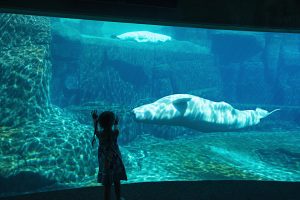A massive win for animal activists
By Brittney MacDonald, Life & Style Editor
On October 24, a bill was passed by the Senate and will now enter the House of Commons—making it one step closer to becoming Canadian law. That bill was S-203, which outlaws the captivity and captive breeding of cetaceans.
S-203 was first put forth by former Liberal senator Wilfred Moore in December of 2015. It has been a long and arduous road for proponents of the bill. Marineland’s owner, John Holer, testified before the Senate committee asking them to stop the bill.
Recently Holer issued a statement saying: “Bill S-203 was not supported by the relevant ministries or the credible scientific community […] The bill and the debate around it [have] been highly emotional, lacking in fact-based or science-based analysis and mired in unnecessary conflict incited by radical animal rights groups from the United States.”
Holer’s claims, and others like it, led to the lengthy debate of the bill. The three-year legislative slog culminated in the bill being cleared. It is a massive win for many animal welfare activists, who have been attempting to highlight the cruelty of captive practices. Thankfully, they will not have to wait much longer to see if S-203 is enacted into law. It is set to be passed through the House of Commons by May.
As a possible addition to the Canadian Criminal Code, violators of the proposed Act will be fined upwards of $200,000. The high sum is meant to be a deliberate deterrent, since the fine would be placed on the parks and not individuals.
Surprisingly, S-203 seems to have unified Members of Parliament across political lines. Known proponents of the bill include Conservative MP Michelle Rempel, Liberal Nathaniel Erksine-Smith, and New Democrat Fin Donnelly.
The Vancouver Aquarium has yet to respond to the bill’s passing but did remove its captive whales and dolphins from display some time ago—claiming that the protests against captivity became a “distraction.” It is worth noting that the Vancouver Aquarium was, according to the Globe and Mail, the “first [aquarium] in the world to stop capturing wild cetaceans in 1996”, and that any new cetaceans introduced to the aquarium since then have been rescue animals.



